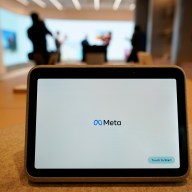By Jeffrey Dastin, Cate Cadell and Kane Wu
SAN FRANCISCO/BEIJING/HONG KONG (Reuters) – Amazon.com Inc said it will shut its China online store by July 18, as the U.S. e-commerce giant focuses on the lucrative businesses of selling overseas goods and cloud services in the world’s most populous nation.
The move underscores how entrenched, home-grown e-commerce rivals have made it difficult for Amazon’s marketplace to gain traction in China. Consumer research firm iResearch Global said Alibaba Group Holding’s Tmall marketplace and JD.com controlled 82 percent of the Chinese e-commerce market last year.
An Amazon spokeswoman told Reuters on Thursday that it is notifying sellers that it will no longer operate a marketplace, nor provide seller services on Amazon.cn.
Sources familiar with its plans had told Reuters a day before that the company had planned to make such a move.
“We are working closely with our sellers to ensure a smooth transition and to continue to deliver the best customer experience possible,” the spokeswoman said in a statement.
“Sellers interested in continuing to sell on Amazon outside of China are able to do so through Amazon Global Selling.”
The sources said that Amazon shoppers in China will no longer be able to buy goods from third-party merchants in the country, but they still will be able to order from the United States, Britain, Germany and Japan via the firm’s global store.
Amazon will wind down support for domestic-selling merchants in China in the next 90 days and review the impact on its fulfilment centers in the country, some of which it may close, one of the people said.
“They’re pulling out because it’s not profitable and not growing,” said analyst Michael Pachter at Wedbush Securities.
Ker Zheng, marketing specialist at Shenzhen-based e-commerce consultancy Azoya, said Amazon had no major competitive advantage in China over its domestic rivals.
Unless someone is searching for a very specific imported good that can’t be found elsewhere, “there’s no reason for a consumer to pick Amazon because they’re not going to be able to ship things as fast as Tmall or JD,” he said.
The Amazon spokeswoman said that the company would continue to invest and grow in China through its Amazon Global Store, Global Selling, Kindle e-readers and online content. Amazon Web Services, the company’s cloud computing unit that sells data storage and computing power to enterprises, will also remain.
U.S.-listed shares of Alibaba and JD.com rose 1 percent on Wednesday after Reuters first reported the move, before paring gains later in the day. Amazon’s shares closed flat.
E-COMMERCE SLOWDOWN
The withdrawal of the world’s largest online retailer – founded by Jeff Bezos, who later became the world’s richest person – comes amid a broader e-commerce slowdown in China. Alibaba in January reported its slowest quarterly earnings growth since 2016, while JD.com is responding to the changing business environment with staff cuts.
It also follows the Chinese e-commerce retreat of other big-name Western retailers. Walmart Inc sold its Chinese online shopping platform to JD.com in 2016 in return for a stake in JD.com to focus on its bricks-and-mortar stores.
Similarly, the country appears to factor less in the global aspirations of fellow U.S. tech majors Netflix Inc, Facebook Inc and Alphabet Inc’s Google, Wedbush Securities’ Pachter said.
Amazon bought Chinese online shopping website Joyo.com in 2004 for $75 million, rebranding the business in 2011 as Amazon China. But in a sign of Tmall’s dominance, Amazon opened an online store on the Alibaba site in 2015.
Amazon is still expanding aggressively in other countries, notably India, where it is contending with local rival Flipkart.
(Reporting by Jeffrey Dastin in SAN FRANCISCO, Cate Cadell and Pei Li in BEIJING, Kane Wu in HONG KONG and Josh Horwitz and Brenda Goh in SHANGHAI; Editing by Susan Thomas, Christopher Cushing and Muralikumar Anantharaman)


















